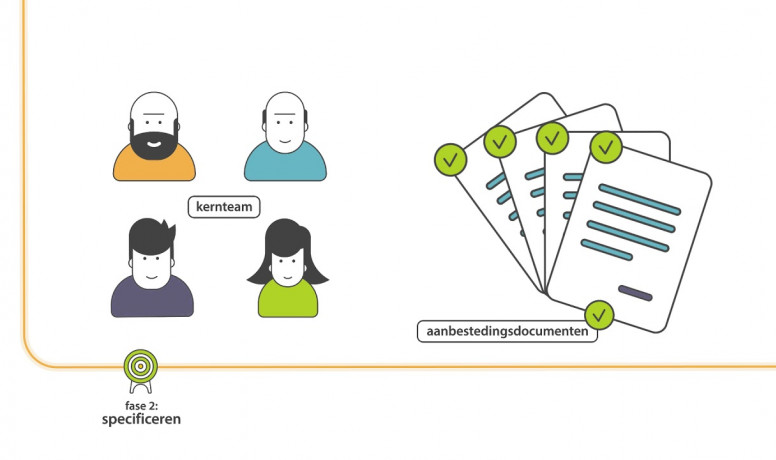European public procurement
Read all about European public procurement or watch the short animations.
What is European Procurement?
In this procedure, SURF announces via a European portal that we wish to purchase a particular service on behalf of the educational insitutions. All interested suppliers can submit a tender. We determine the winner together with the core team on the basis of pre-defined assessment criteria. In a European tender, you never know in advance who the supplier will be.
When can you use a European tender?
If the expected order value for your institution for the contract period is €214,000 (excluding VAT) or more, you are obliged to tender on a European basis. If the expected contract size for this period is between the multiple threshold and €214,000, it is also interesting to participate in a joint European tendering procedure by SURF.
Benefits of procurement with SURF
Joint procurement of IT contracts provides you as an institution with a number of advantages:
- Because of the large volume we realize good (price) conditions;
- Sharing knowledge, experience and capacity results in an optimal contract;
- By jointly tendering you save the costs of your own procurement process;
- You can leave most of the contract management to SURF.
Procurement via SURF
The procurement process
The procurement process for IT contracts is divided into four phases, which are spread over the period between the start up and the actual execution of a tender. Watch the animation with explanation or read the explanation of the phases below.
The procurement process with SURF
In this phase the needs of institutions are determined. Institutions which make use of an expiring contract receive a commitment survey in order to gauge whether they need a new tender. If there is sufficient commitment, institutions which do not make use of the expiring agreement will receive an interest survey. We outline the requirements and wishes and draw up the preconditions for this tendering procedure. After this, the procurement strategy is determined. We also make an inventory of which institutions have the intention to participate.
With a number of potentially participating institutions we put together a core team, with them we specify the exact requirements and wishes. The tender documents are the most important end products of this phase. This means that all the documents are ready for an actual tender.
After the specification phase, the selection phase for a market party and thus the formal tendering process begins. The phase follows a number of fixed steps in which we publish the tender on TenderNed and market parties can ask questions about the tender (memorandum of information). In this phase we also receive the tenders from market parties, which are assessed by the core team.
After the selection of a market party and the award of the contract, the contracting takes place. We start with the preparatory work, so that orders can be placed. The tendering process is completed and SURF's role changes to that of monitoring the agreement, known as contract management. For part of these tendering procedures, the final award takes place via a procedure for the conclusion of further contracts under the framework agreement (a mini-competition). These mini-competitions are usually carried out by institutions themselves - without further support from SURF. What scope is open to educational institutions under procurement law in the implementation of these mini-competitions?
Institutions that indicate in phase 1 that they wish to participate in the tender procedure will be kept informed of the progress and developments throughout the entire process. At the end of phase 2, when all documents for the tender are ready, you decide whether you actually want to participate in the tender procedure.

